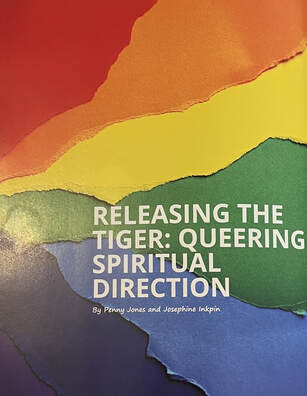 This paper (by the Revd Penny Jones and myself) was originally published in Coolamon, Issue 7 March 2023, the journal of the Australian Network for Spiritual Direction). It can be downloaded here. It explores some ways in which LGBTQ+ people contribute to our changing experience of God and reveal paths of enriching spiritual transformation. For sexual and gender identities have been at the heart of some significant recent features of both spiritual growth and conflict. From the late 1960s,1 lesbian, gay, bisexual, transgender and questioning (LGBTQ) 2, or queer3 people have formed increasingly effective social and political movements, transforming many cultural, legal and philosophical norms across the world. For many, this has also involved deliberate or unconscious spiritual expression. Progress has however been uneven, across time and space, and traditional religious formations and spiritual norms have been particular obstacles. Differing, and sometimes conflicting, conceptions of queer people and their gifts are therefore inevitably present within the spiritual direction space. Deeper exploration of these, and the underlying lived spiritual experience of queer people, is thus vital for the further flourishing of all involved. Indeed, whilst aspects may be challenging for some, the authors of this paper affirm that queer spiritual experience and understanding offers gifts which provide renewing insights for spiritual direction practice as a whole. Without unduly entering into wider controversies over sexuality and gender, this paper therefore suggests some life-giving ways to engage. These include exploring aspects of “queer virtues” identified by queer spiritual theologians and the metaphors of “coming out” and “transition” as embodiments of the paschal mystery and healthy, holy, transformation...
1 Comment
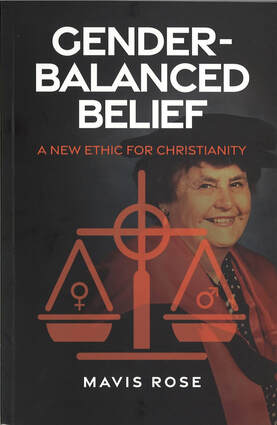 First of all, may I acknowledge the traditional owners of this land and all First Nations people in this area. I also give thanks for this cathedral, so important to me in my own journey in recent years, and all who have helped develop the unfolding work of Christian feminism which we highlight tonight. In introducing and commending Mavis’ book, I am reminded of a number of things from the first wave of Christian feminism, which was the subject of my Ph.D. One is a famous quotation from the northern English working-class leader Ada Nield Chew: women’s advance, she used to say, ‘’tis a long row to hoe.’ What we do today, as Mavis encouraged in her book, is part of a continuing journey. The South African writer Olive Schreiner put it strikingly in one of her essays, which drew heavily on biblical imagery, and helped her become the ‘muse’ of first-wave Christian feminists. One of the Anglican suffragettes, Lady Constance Lytton, referred to this in her autobiographical account of the sufferings of female campaigners in prison. We were encouraged each night in Holloway, she recalled, by readings of Schreiner’s work, not least the story ‘Making a Track’. An allegory of women’s, and others’, struggles for justice, this described a long trail of the bodies of insects stretching over a long distance. These learn, as Olive Schreiner put it. to ‘take off the shoes of dependence’, to clothe themselves in ‘the garment of Truth,’ and to use ‘the staff of Reason’ when they are lost and cannot find a way. Eventually the track of bodies reaches the banks of a river to cross into a more spacious land of freedom, fording the river with the costly solidarity of their bodies. On the other side, there is room for more authentic life and expression. ‘But what of those who did not make it?’, asks one of the characters in the story, ‘those who were swept away by the current or did not even build the bridge with their bodies?’ ‘What of that?’, comes the reply, ‘they make a track to the water’s edge’ and ‘over that bridge, which shall be built with our bodies… the entire human race will pass.’ Mavis was one of those great Brisbane women who helped form the bridge of women’s ordination, and stepped over. Yet, as the exhibition of Anglican women’s history in this cathedral affirms, she would not have been able to do so without others who had made the track to the water’s edge. Vitally, she also knew that stepping over the bridge was not enough. Much more was needed. Some of that has been in evidence in recent years, including the first female bishop in this diocese. Yet Mavis was clear that such landmarks are insufficient without a much greater transformation. This is what she calls us to in her book Gender Balance. It seeks, and embodies, not an end but an encouragement to travel on. Indeed, for me it is a particular delight to see it published, for it represents a key part of the track – after the ordination of women - that was so difficult, and which is so easily ignored. If we are to travel on further, into fuller life and freedom for all, we need to see the whole track and learn from it. This is what Mavis’ book helps provide. We are diminished without it. Understandably, after the first ordinations of women, the movement which brought them about lost steam. Partly this was because so many wonderful women poured their hearts, faith and lives into parish and other ministries hitherto denied them. This brought much fruit but came at a cost from which we are still, I think, recovering. As a lay woman who had helped lead MOW locally, Mavis saw that. Gender Balance thus represents her perceptions of what more is needed on the track. She perceives the insidiousness of patriarchy and clericalism. She asks us to go deeper, to reconsider symbols and language, relationships and support. She also reminds us of the bigger vision of Christian feminism, so much larger than ecclesial offices or church facing concerns. Lift your gaze, she continues to challenge us. Renew the pathway and the purpose your forebears marked out, at the cost of their bodies, lives and faith struggles. Mavis thus recalls us to the promise of the 21st century in which we live and to a better Faith in which to live it. She outlines how the continued undervaluing of women is a major feature of what she calls ‘Christianity’s Credibility Crisis’. Indeed, she shows how women and women’s experience is devalued in aspects of our Faith and how dissent is resisted by entrenched attitudes and structures. At the heart of this is what she calls ‘The Embodiment Problem’, even though women carry with them connections and resources which can bring new life. She affirms that women’s theology and spiritual experience can thus help to renew the expression and work of the gospel, providing health in so many other fields also. Gender Balance is not entirely complete as a vision of Christian feminism for today. For there are some new elements recently which have entered the journey, which can make us stumble or enrich us. Mavis does not really speak for example of the rise of sexual and gender diversity, which have made the track more complex and enlivening. She also wrote at a time before the full rise of recent phenomena of terrorism and anti-terrorism, and the resurgence of populism and authoritarianism in politics and religion. Yet, even in the face of such factors, Mavis reminds us in the book of other features which we have neglected. Not least, particularly at the end of this Week of Prayer for Christian Unity, is the value she rightly gives to solidarity and co-working across our denominational and national boundaries. She thus draws widely on the work of Catholic and other theologians, and on ecumenical connections, not least the inspiration that was the Ecumenical Decade of Churches in Solidarity with Women. What an idea that would be to see again! What a difference it makes when women and others make fresh linkages together, as the #MeToo movement and Marches for Justice have shown recently – the wider and deeper agenda of liberation is not lost, but renewed. I sadly only met Mavis in person once: when she came to my home, on the St Francis College site, to talk with some of our students and others about the ordination of women struggle, its legacy and learnings, and the need for the continuing journey. Yet I feel strongly that, if she were here today, she would be warmly encouraging us to take the next steps on the track – and this, she indeed does today through this book, distilling some of her lively insight, informed reading and personal wisdom, continuing to challenge us (as the self-confessed ‘Anglican spiritual guerilla’ she was) and willing us on. Do take up Mavis’ book, learn and inwardly digest, and, inspired by her spirit, and that of all who have gone before us and made the path to the water’s edge, build the next bridge and help others cross over. For like Mavis, we either help to make our own history, or are condemned to be victims of it. 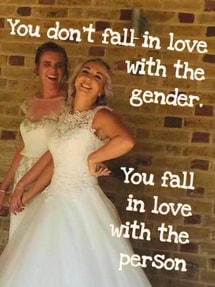 After marriage equality law passed, I was delighted, but cut ever deeper to the heart every time someone excluded from Australian Anglican rules asked if I’d preside at their wedding. It is one significant reason I now rejoice in sharing in Uniting Church ministry . It’s three decades since, as a priest, I first blessed a same gender relationship (a gorgeous couple in a former coal mining village on the top of England) so even blessings (aka ‘crumbs from the hetero/cis table’) are really just not enough anymore. So I was hugely delighted today to talk with a wonderful gay couple about their forthcoming wedding at which I’ve been asked to preside - so good to meet their needs for a priest in Sydney. Our queer God will find a way (With love and prayers for those continuing to work for change in every faith community) One of my great theological heroes is Virginia Ramey Mollenkott, who sadly died recently. Virginia was such an inspiration to me over the years - beginning from when I was ridiculed by male students at theological college for promoting her landmark book on the Divine Feminine - apparently they couldn’t think of ‘images of women’ except pornographically (and ours was a ‘liberal’ college)! Later, her work Omnigender, and her own gender identity journey, was important in my own realisation of my authentic gender. In this short video she speaks of aspects of her feminist journey, as she accepts the first Mother Eagle Award (to the 2017 Gay Christian Network Conference). The Mother Eagle Award is presented jointly by Christian Feminism Today and the Gay Christian Network to honour women who have taken the lead in courageously advocating for LGBTQIA equality in Christianity (for more information, please visit https://eewc.com/mother-eagle-award/.) Virginia's message is an enduring one which I strongly echo: ‘Please, please, transcend your fear. Work with me and the cosmic Mother Eagle in the creation of social justice, stirring up our best, fluttering over our young, and spreading our broad wings’ One of the most encouraging aspects of the Australian theological scene is the work of the Australian Collaborators in Feminist Theologies. Based at the University of Divinity, Melbourne, this vital network has considerably inspired and supported me in recent times and will, I hope, continue to grow in strength and influence. Personally I am thankful to this project and its leaders to have an essay (entitled 'From Footballs to Matildas? - Gender Diverse People and Theological Game Change') included in the forthcoming book Contemporary Feminist Theologies: Power, Authority, Love - part of Routledge's 'Gender, Theology and Spirituality' series. I am also pleased to share in the Horizons series of online conversations which the Collaborators run on a monthly basis. This month, I am myself a focal point, chatting with Dr Cath McKinney about intersectionality, not least the challenges and opportunities of gender diverse people within feminist developments (link to event here). Here below - and at this link - is a short reflection to stimulate thought and discussion...
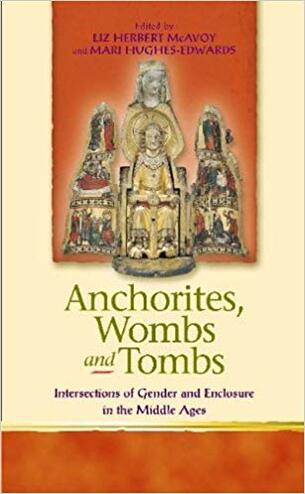 Taken seriously, Christian spirituality really is extraordinarily queer. This is hidden by widespread modernist narratives and assumptions, both secularist and Christian 'mainstream', and also, still more, biblicist and fundamentalist, Sadly, such restrictive approaches try to squeeze the tremendous historical diversity of scripture, tradition and religious experience into various Procrustean beds of ordered, ideological, understanding. Yet the control of spiritual bodies, like queer bodies, always proves elusive, even to the most subtle and determined of subduers and butchers. History is indeed full of horrendous tortures and amputations inflicted upon such bodies. Ultimately however they can not be wholly suppressed. They break through in ways which are life-giving and surprising, if sometimes highly ambiguous and constrained. Certainly this is true of medieval bodies, not least those of female mystics: perhaps above all represented in Julian, or Juliana, of Norwich. For it is not an accident that the 14th century Julian has been 'rediscovered' in recent decades by those seeking fresh perspectives on spirituality, gender, God, and the renewal of being. In her we are drawn from our tombs of suffering and despair into subversive possibilities of new creation.. Not for nothing is she thus perhaps the greatest of all English spiritual teachers... 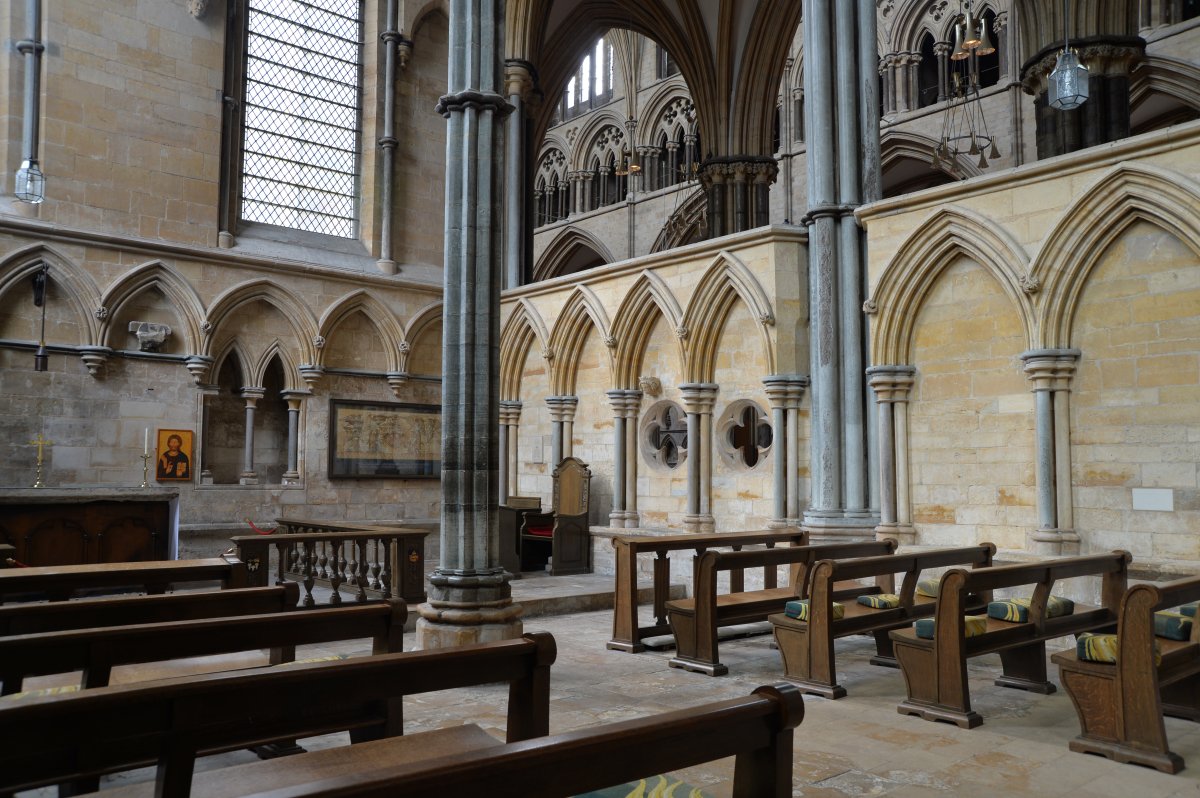 Of all the chapels in all the world, the Mary Magdalene or Morning Chapel in Lincoln Cathedral lies deepest in my heart. At every key stage in my life, and before every major decision, I have prayed there, asking for support, affirmation, guidance, reassurance, or simply the receiving of joy or holding of pain. It is more than that Lincoln is a spiritual home, born of years of growing up nearby, and of participation in important events in the cathedral and of all kinds of things in the city (including, of course, of its special little football club at Sincil Bank, the other Lincoln 'spiritual' centre inscribed in my heart). Mary Magdalene and I go way back, as I have reflected elsewhere. She has been my sister, model, and inspiration in struggle, faith and new life, helping me to be transformed from silence, suppression and stigma (see further here, and here). Yet now I discover something I should have known long ago: that her name and spirit is attached not only to that special cathedral chapel, but it lies also beneath the cathedral itself. As such, she symbolises for me the foundational love beneath the types of 'Norman yoke' we have forced, or placed, upon ourselves... 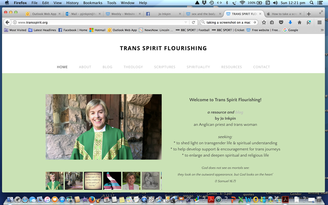 Trans Spirit Flourishing is the name of a new website I have produced, which seeks to shed light on transgender life & spiritual understanding and to help develop support and encouragement for trans people in our varied journeys. For spirituality is essential to human beings but we have often used it ignorantly. The unnecessary and deeply hurtful Australian postal survey on marriage equality has sadly demonstrated how many Christians are still not aware of the devastating damage which has been done and which continues to be inflicted on LGBTI+ people by ideas and practices which we desperately need to leave behind. As a result the deep spiritual life and insights of so many LGBTI+ people is often neglected. For transgender and gender nonconforming people this is a particular tragedy as our journeys are so much bound up with exploring and expressing our deepest identities. Things are changing however, even if some of us will no doubt continue to bear the pain of the struggle. Trans spiritual flourishing for some sections of religious faiths may never happen, but who knows - God is amazing in surprises! However trans spirit flourishing can begin, or develop further, right and here and now, for everyone . My hope is that this resource can add, and point, to sources of light and encouragement - both, and above all, for those struggling with gender identity themselves, and for allies and those genuinely seeking understanding. We are living through challenging times, with many demanding issues of ecology, reconciliation, peacemaking, poverty, and care for refugees and other vulnerable people. Gender diversity has so often been a battlefield. May we make of it a source of grace for the larger journey of healing and wholeness for all. 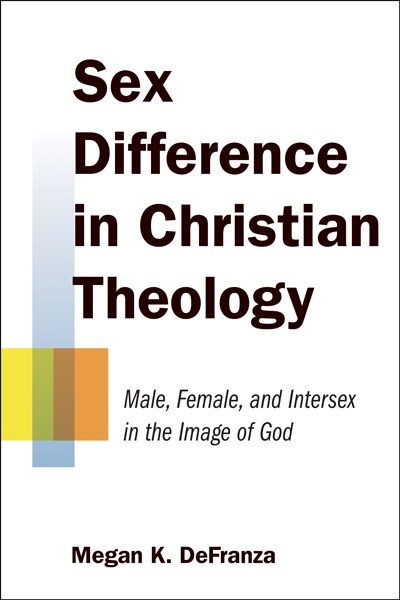 I love the approach of Megan Defranza - an intelligent, beautiful and gently spoken evangelical theologian - and the light, rather than heat, she is trying to bring to intersex and gender discussion from a Christian perspective (particularly in relation to intersex people but with implications for much more). I also identify very much with her thinking of herself as 'a bridge builder rather than a culture warrior' and her story of the Vietnam Vet praying for her, "because I know that in war, bridges are the first targets to be taken out”! From an orrthodox Christian perspective, as Megan says, we are not called to conform to (ideas of) Adam or Eve, but only to be who we are in Christ'. read more here: (including a video interview) |
AuthorJo Inkpin is an Anglican priest serving as Minister of Pitt St Uniting Church in Sydney, a trans woman, theologian & justice activist. These are some of my reflections on life, spirit, and the search for peace, justice & sustainable creation. Archives
July 2024
Categories
All
|
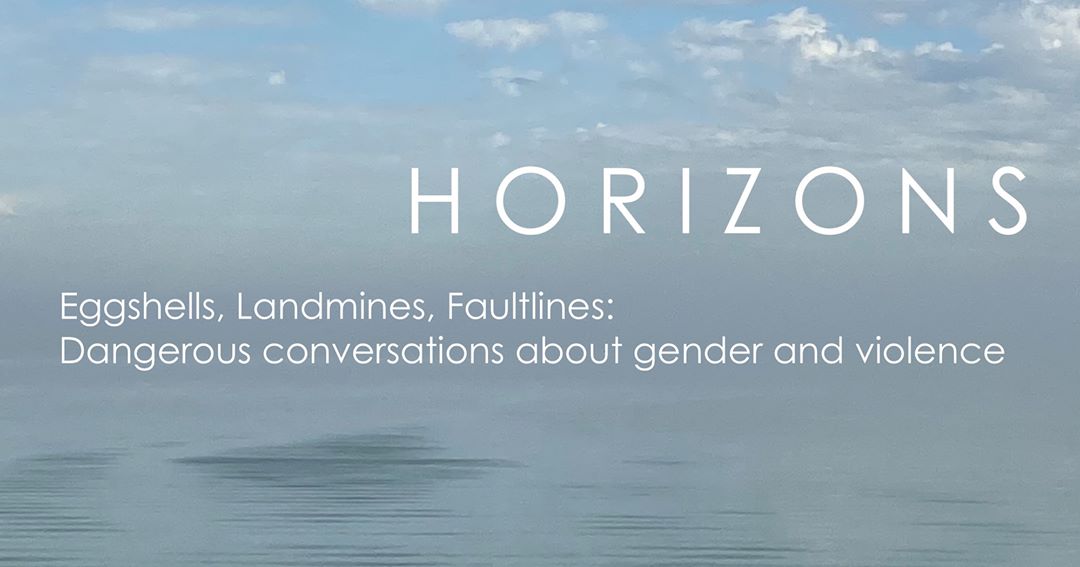
 RSS Feed
RSS Feed